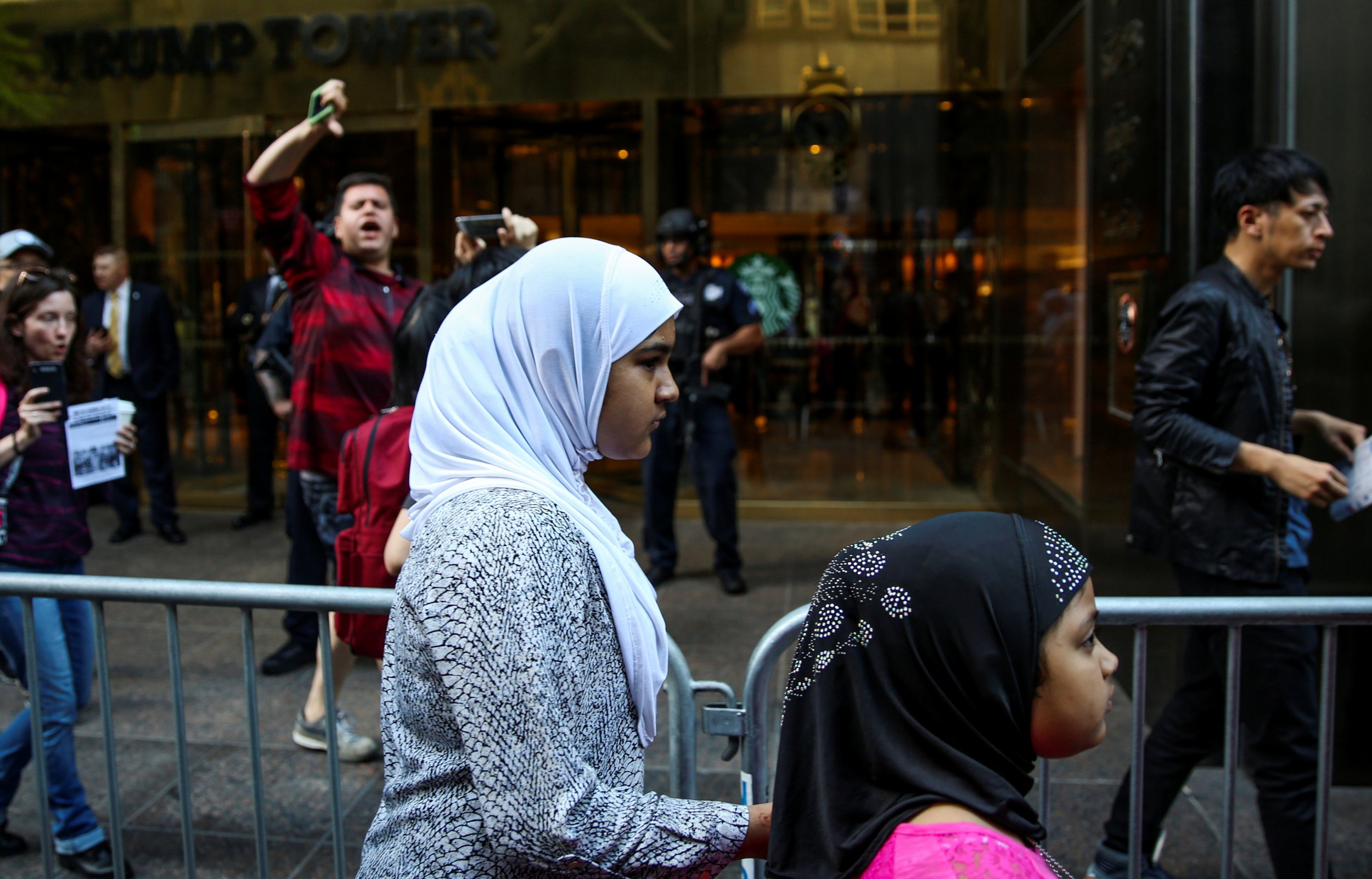
In a decision that disheartened American Muslims across the country, the Supreme Court on Monday allowed the Trump administration to fully implement its ban on Muslim immigration.
It is not a final decision, and the Supreme Court will almost certainly revisit it in the coming months. Nevertheless, the decision marked a setback in the now almost year-long campaign against this administration's attempt to enshrine into our laws the Islamophobia that helped make Donald Trump president.
In other words, it does not require jurisprudential genius to conclude that these bans are simply an illegal expression of anti-Muslim animosity: This travel ban is a Muslim ban.
The Supreme Court's decision, however, is inscrutable. With no explanation, the court gave the Trump administration legal cover, for the time being, to separate U.S. citizens from their spouses overseas, from their elderly parents suffering from life-threatening illnesses in war-ravaged countries and even from their own children. Let's not mince words here: In just a few perfunctory sentences, this is what the Supreme Court has done.
To make matters worse, this ban, like the two others before it, is incoherent. It is a multi-thousand word monument to the anti-Muslim bigotry that swept Trump into the White House. The details of each executive order read like the disinterested afterthoughts of a president who understands that the minutiae will soon be forgotten. What will last is the message this executive action broadcasts: that Islam is dangerous and that Muslims must be treated differently.
And this message should be as clear to the Supreme Court as it is to the Muslims who are demonized by it. Trump, as a candidate and now as the president, repeatedly made his animus known. He's told us—over and over and over again.
During the campaign, after his infamous promise to ban all Muslim immigration to the United States, then-candidate Trump explained that "Islam hates us" and that "we're having problems with Muslims coming into the country." Once elected, on the day he signed the first ban, Trump gave an interview to the Christian Broadcasting Network during which he made clear that the ban would exempt Christians from the affected nations. "We are going to help them," Trump explained, referring only to Christians from the banned countries.
And it has become increasingly clear that the Muslim ban is simply one part of a multipronged effort to stigmatize Islam, marginalize the Muslim community and pit different religious groups against each other.
In August, Trump promoted a vulgar anti-Muslim trope regarding "what General Pershing of the United States did to terrorists when caught," referencing a bigoted myth that dipping bullets in pig's blood and then shooting Muslims with those bullets can effectively deter terrorism. Last week, he disseminated a series of anti-Muslim videos, including one that purports to show a Muslim destroying a statue of the Virgin Mary, to whom the Quran refers by name dozens of times and is revered in Islam. These facts aside, the president's goals are clear.

The president of the United States aims to create as much religious strife between Christians and Muslims as possible and to exploit that conflict for his political benefit. In doing so, he betrays the Constitution's First Amendment and the protections it provides to all religious groups.
In the face of this campaign of presidential disparagement, the Muslim community's course is clear. We will all keep organizing, protesting, rallying at airports across the country, and of course, the lawyers among us will keep filing lawsuits.
What is not clear is what path the Supreme Court will take. It's a critical decision for the court, one that will impact the lives of millions. And it's a decision that the Muslim community will remember forever.
But the Supreme Court should know that the Muslim community's commitment to protecting religious liberty for itself and everyone else will endure, no matter the legal outcome and for however long it takes to secure dignity and equality for all.
Lena Masri is CAIR National's litigation director and Gadeir Abbas is CAIR National's senior litigation attorney. Both are counsel in the International Refugee Assistance Project v. Trump, one of the two cases affected by the Supreme Court's order Monday.
Uncommon Knowledge
Newsweek is committed to challenging conventional wisdom and finding connections in the search for common ground.
Newsweek is committed to challenging conventional wisdom and finding connections in the search for common ground.





